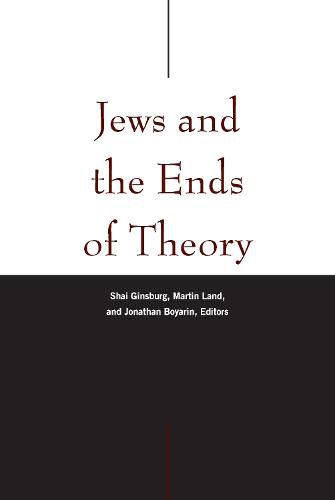Readings Newsletter
Become a Readings Member to make your shopping experience even easier.
Sign in or sign up for free!
You’re not far away from qualifying for FREE standard shipping within Australia
You’ve qualified for FREE standard shipping within Australia
The cart is loading…






Theory, as it’s happened across the humanities, has often been coded as Jewish.
This collection of essays seeks to move past explanations for this understanding that rely on the self-evident (the historical centrality of Jews to the rise of Critical Theory with the Frankfurt School) or stereotypical (psychoanalysis as the Jewish Science ) in order to show how certain problematics of modern Jewishness enrich theory.
In the range of violence and agency that attend the appellation Jew, depending on how, where, and by whom it’s uttered, we can see that Jewishness is a rhetorical as much as a sociological fact, and that its rhetorical and sociological aspects, while linked, are not identical. Attention to this disjuncture helps to elucidate the questions of power, subjectivity, identity, figuration, language, and relation that modern theory has grappled with. These questions in turn implicate geopolitical issues such as the relation of a people to a state and the violence done in the name of simplistic identitarian ideologies.
Clarifying a situation where the Jew is not readily or unproblematically legible, the editors propose what they call spectral reading, a way to understand Jewishness as a fluid and rhetorical presence. While not divorced from sociological facts, this spectral reading works in concert with contemporary theory to mediate pessimistic and utopian impulses, experiences, and realities.
Contributors: Svetlana Boym, Andrew Bush, Sergey Dolgopolski, Jay Geller, Sarah Hammerschlag, Hannan Hever, Martin Land, Martin Jay, James I. Porter, Yehouda Shenhav, Elliot R. Wolfson
$9.00 standard shipping within Australia
FREE standard shipping within Australia for orders over $100.00
Express & International shipping calculated at checkout
Theory, as it’s happened across the humanities, has often been coded as Jewish.
This collection of essays seeks to move past explanations for this understanding that rely on the self-evident (the historical centrality of Jews to the rise of Critical Theory with the Frankfurt School) or stereotypical (psychoanalysis as the Jewish Science ) in order to show how certain problematics of modern Jewishness enrich theory.
In the range of violence and agency that attend the appellation Jew, depending on how, where, and by whom it’s uttered, we can see that Jewishness is a rhetorical as much as a sociological fact, and that its rhetorical and sociological aspects, while linked, are not identical. Attention to this disjuncture helps to elucidate the questions of power, subjectivity, identity, figuration, language, and relation that modern theory has grappled with. These questions in turn implicate geopolitical issues such as the relation of a people to a state and the violence done in the name of simplistic identitarian ideologies.
Clarifying a situation where the Jew is not readily or unproblematically legible, the editors propose what they call spectral reading, a way to understand Jewishness as a fluid and rhetorical presence. While not divorced from sociological facts, this spectral reading works in concert with contemporary theory to mediate pessimistic and utopian impulses, experiences, and realities.
Contributors: Svetlana Boym, Andrew Bush, Sergey Dolgopolski, Jay Geller, Sarah Hammerschlag, Hannan Hever, Martin Land, Martin Jay, James I. Porter, Yehouda Shenhav, Elliot R. Wolfson